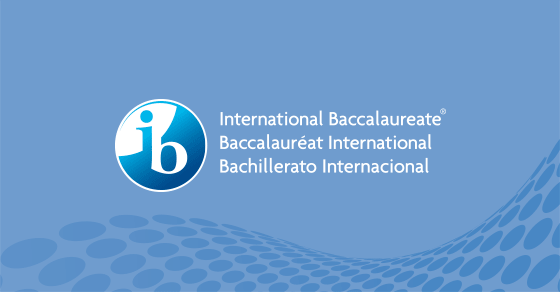Putting the IB exams into perspective

Within the next few weeks, IB students from all around the world are going to sit down at the same time to take the same sort of exam. For many, this may mean fear, long nights of studying, and just plain worry if nothing else.
With test dates quickly approaching, students are urged now more than ever to make use of their time and resources. However, when these rigorous tests are put into perspective, they do not seem quite as daunting. Students need only recognize what the tests really are and how to tackle them.
For some students, this task begins on Friday the 27th with Business Management being the first subject to test. Exams continue until the 16th of May where participating students will take their final Spanish test. For IB students, testing seems like a marathon rather than a sprint, and just like running a real marathon, the best assets to have are practice and confidence.
Being able to understand what that tests are asking for is one of the largest steps to understanding the whole process. Learning how to score as many marks as possible regardless of memory is also a vital skill to have for testing day. RHS IB coordinator Malcolm Collie expands on this.
“Knowing the exam is really important. Know the rubric extremely well, know what the exam is going to look like so you know exactly how many questions you’re going to answer, and know exactly where you’re going to get your points from,” explains Collie.
Another thing that helps students is a sense of confidence when testing. Walking into a test with an optimistic mindset and seeing it as an opportunity to showcase knowledge helps students see the tests as something more normal.
“That kind of [thinking] takes away some of the fear of the exam and puts you in that mindset of ‘ok, I’m gonna go in and show my best side, my best writing, my best math skills’ – that really, really helps,” states Collie.
Few would disagree when students say that these exams are hard. They test not only the skills students have acquired throughout years of coursework, but also how well they can focus, their stamina and endurance, their recall speed, and how well they can bounce back if they encounter things they do not know or are not really sure about. It is difficult for students to look ahead after a disheartening test and find ways to push through and regain that confidence.
Where testing dates fall can also become a issue for students. Exams schedules can fall in inconvenient patterns and leave students to write as many as three essays a day.
Now, for any students concerned about their potential performances, there are still many ways to study and prepare before actually taking the exams. Many teachers urge students to form study groups as a way to ready themselves.
“This is the opportunity to kind of gather around your friends, get some support from them. Look at past papers together, compare what answers you would give to particular questions, and share your notes,” expands Collie.
Aside from study groups, students are also highly encouraged to take care of themselves the night before testing instead of trying to cram all the material into a single night.
“You’re better if you get a good night’s sleep, good breakfast, those kinds of things before the exam rather than trying to cram in last second knowledge – you need to be at your best,” encourages Collie.
Ultimately, going into the test with a confident, healthy mindset as well as an arsenal of skills and preparation will be incredibly helpful for students when getting ready to take these extremely stressful exams. As long as students remember to study and take care of themselves to the best of their abilities, they will have a much easier time overcoming the hurdles of exams.
At the end of the day follow some advice from Ms. Clark and “just tell yourself you can do it and believe you actually can.”
Current Testing Dates:
April 27th:
- Business Management – 11am to 2:30pm in the library
April 30th:
- Business Management – 7:15am to 10:30am in the IPAC
May 2nd:
- Mathematics – 11am to 2pm in the IPAC
May 3rd:
- Mathematics – 7:15am to 10am in the IPAC
May 4th:
- Environmental Studies (ESS) – 11am to 1:30pm in the IPAC
May 7th:
- Environmental Studies (ESS) – 7:15am to 10:30am in the IPAC
- Language and Literature – 11am to 2:30pm in the IPAC
May 8th:
- Language and Literature – 7:15am to 10:30am in the IPAC
- History (papers 1 and 2) – 11am to 3pm in the IPAC
May 9th:
- History (paper 3) – 7:15am to 11am in the IPAC
May 10th:
- Sports Science (papers 1 and 2) – 11am to 2:30pm in the IPAC
May 11th:
- Sports Science (paper 3) – 8:15am to 10:30am in the IPAC
- Psychology (paper 1) – 11am to 2:30pm in the IPAC
May 14th:
- Psychology (papers 2 and 3) – 7:15am to 11:30am in the IPAC
- Biology (papers 1 and 2) – 11:30am to 3:00pm in the IPAC
May 15th:
- Biology (paper 3) – 7:15am to 9:30am in the IPAC
- Spanish – 11am to 2pm in the IPAC
May 16th:
- Spanish – 7:15am to 10am in the IPAC
feature image: www.ibo.org





